Aphids present one of the top 10 gardening problems. How do you get these little sap-sucking monsters off of your plants and out of your garden? It can be a problem indoors and out. They are commonly found in groups, and when you head out to your garden and find a couple of dozen aphids feasting on one of your favorite flowers, you can feel both anger and frustration.
You are angry because these tiny insects literally sap the life out of your plants. You may be frustrated because you have tried just about everything in your attempt to discover how to get rid of aphids. What’s really unsettling is when you find these little buggers on your indoor plants.
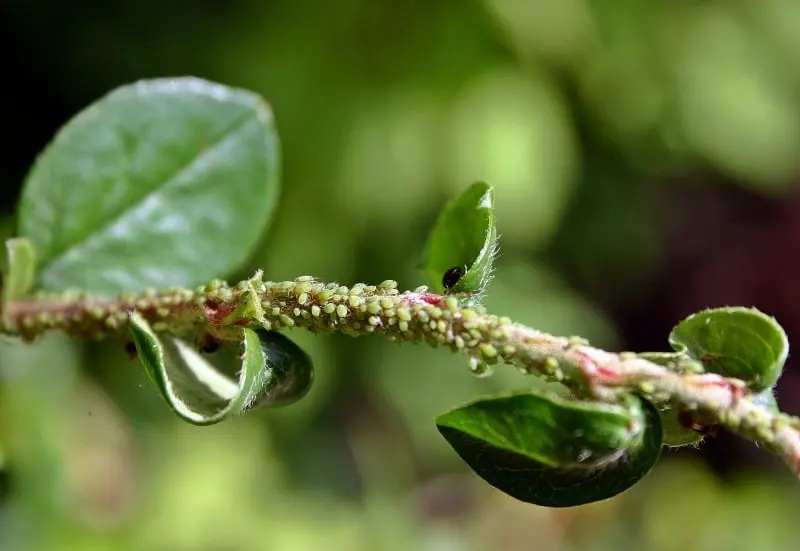
What does aphid damage look like?
Plants may look wilted and sickly, and fail to thrive.
Leaves may be mottled or yellowing, turning brown and curling under.
Aphids suck the plant sap in the leaves and can kill the entire plant. Their saliva is also toxic to plants, and aphids can transmit diseases, like viruses, to their hosts. Controlling aphids also helps prevent the spread of these dreaded diseases.
Insect appearance
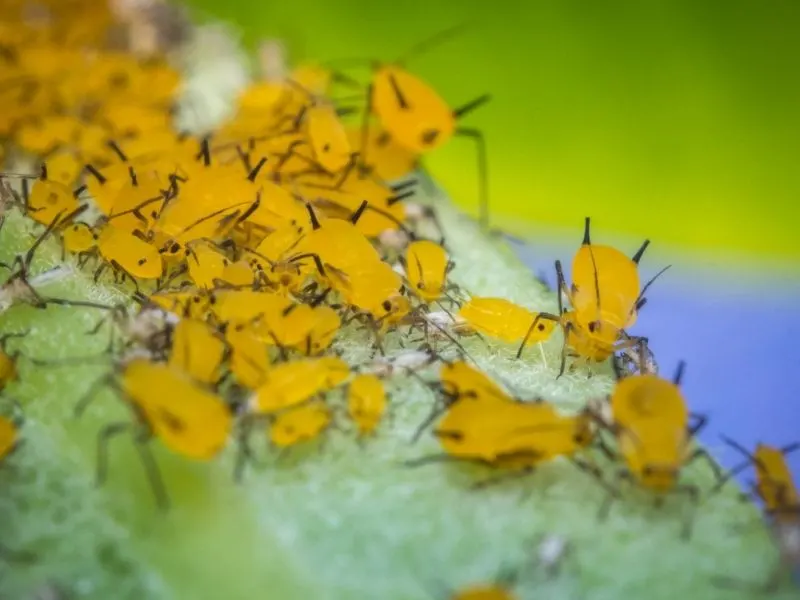
Look closely, and you will find dense colonies of tiny, soft-bodied bugs, usually yellowish, but sometimes light green or ash gray too. They often collect on the undersides of leaves or the growing tips of the plants.
You will also find a sticky honeydew trail they exude, which attracts ants. If you’ve got ants, look for aphids.
7 Natural Ways To Get Rid Of Aphids
There are plenty of store-bought, chemical-based aphid killing solutions. If you use any of these, you run the risk of harming your children, your pets, and even your plants. That’s why many gardening enthusiasts opt for one or more of the following 7 safe and natural solutions.
1. Good old H2O
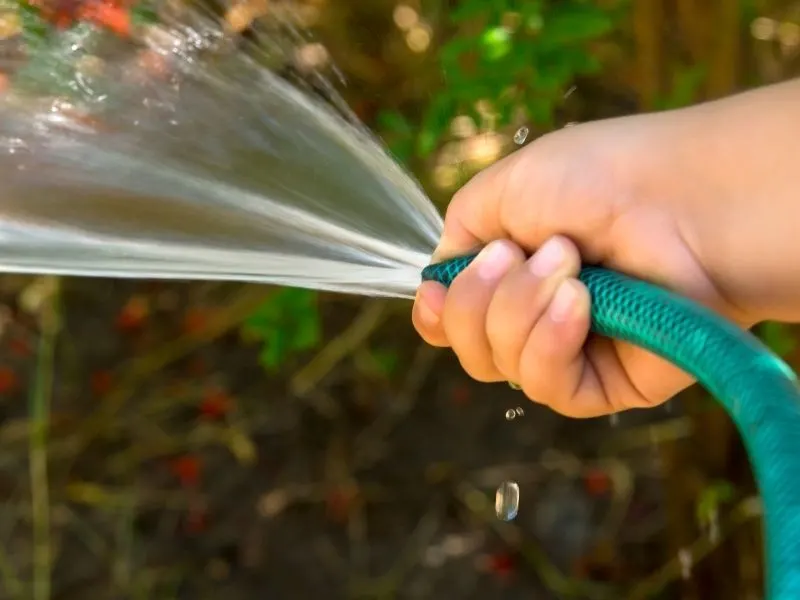
Wherever you see aphids (they often hide on the bottom sides of leaves), spray them with water. Get a refillable bottle with a sprayer nozzle and blast them off the leaves. If you do this each morning, the aphids will fall harmlessly to your dirt or soil, where they will likely die.
2. Soap and water
If you want to make sure the nasty little buggers are gone for good, add a teaspoon of liquid dish soap to 32 ounces of water. Spray away the aphids.
3. Squish them
If you catch the infestation early on, just pick the squishy little (1/32-1/8 inch) aphids off by hand and crush them.
4. Garlic spray gets rid of aphids
Crush an entire head of garlic. Drop it into 2 cups of hot water and let it sit overnight. If you hate the idea of killing anything (even those ugly little aphids), you will like this solution. It doesn’t hurt your plants and it doesn’t kill the aphids either. It will render your plants smelly to aphids, and this means they will decide to eat and plant their eggs elsewhere.
Strain the solution in the morning, placing any large pieces of garlic into your compost or soil (or, if you have chicken, it keeps them safe from disease). Add the garlic water to a tablespoon of liquid dish soap and a tablespoon of hot pepper sauce. You can spray this on the tops and the bottoms of leaves.
5. Invest in biological helpers
Ladybugs, green lacewings, and gall midges are all good insects that prey on aphids.
If ladybugs could speak, they would tell you that they absolutely love eating aphids.
If you have never purchased ladybugs before, ask for them at your local nursery. Or ask your landscaper: they may know where to buy ladybugs as well. Or, even better, head over to Amazon and get them to your door in 2 days with Prime.
6. Attract the right kinds of birds
It might not be advisable to allow birds into your home, but there are certain wild birds that love eating aphids and other bugs.
Keep bird feeders near your plants and use the right types of seed to attract chickadees and wrens. Titmice and other small birds also love to eat insects. Add a few birdhouses and a birdbath to tempt aphid-eating avians to assist you in your plant-saving endeavors.
7. Lure the aphids away
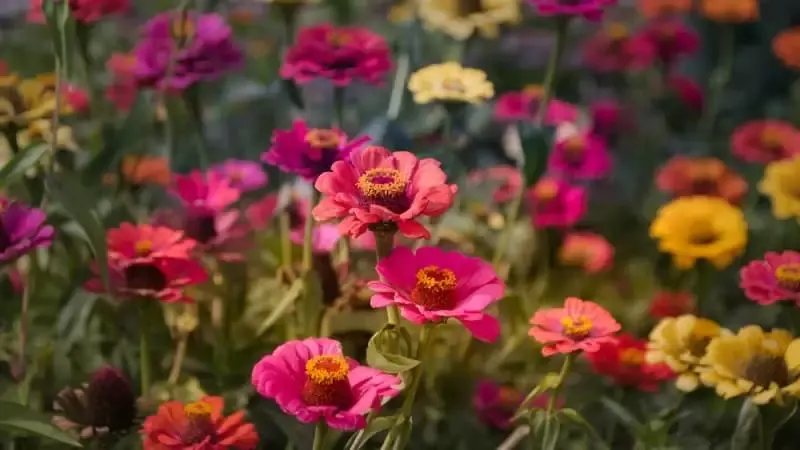
Discovering how to get rid of aphids sometimes means distraction planting. You intentionally add flowers and plants to your garden that you know aphids absolutely love.
The idea is that they will be distracted by plants they find delicious, and will stay away from the rest of your garden. Aphids love zinnias and cosmos, marigolds and dahlias, sunflowers, daisies, and calendula.
How to use hydrogen peroxide for aphids: a cheap and versatile method
Hydrogen Peroxide (H2O2) is a water molecule with an extra atom of Oxygen attached. This extra Oxygen atom is quite easily detached from the water molecule and eagerly combines with any suitable substance that has the room for it. For example, it will attack organic blood cells.
Any drugstore offers a 3% hydrogen peroxide solution for human use. This liquid is good for treating minor cuts and scrapes etc. It is also used for softening ear wax. It works by oxidizing the chemical parts that are presenting as having a free space for the Oxygen atom.
When (H2O2) comes in contact with these “impurities” it will give a reaction that causes it to fizz. This fizzing is the Oxygen atoms coming out of their bond with the water molecules and bubbling out of the solution. As gardeners, we can use this eagerness to break its bond to help keep our plants free from everyday pests, and our nutrient solutions free of anaerobic (bad) bacteria.
In the same way as old organic blood cells are attacked and consumed by the fizzing action of the peroxide, so will any bacteria and small insects be
destroyed by a 3% solution. At this strength, it is safe for human skin but
lethal to most bugs.
Mix up the following in a clean empty spray bottle for a weekly preventative spray:
- 1/4 cup of 3% Hydrogen Peroxide
- 2 tablespoons of Rubbing Alcohol (or old-style mouth wash like Listerine)
- 1/4 tsp. of wetting agent (dishwashing liquid will do)
Use this mixture as a foliar spray to keep your plants healthy and free from
bugs.
Another advantage of the Peroxide breaking down is that it releases free
Oxygen into the area. So, if you were to add some to your nutrient tank, the
dissolved Oxygen being released around the root system not only kills any bad root material and bacteria but also oxygenates the roots with the excess Oxygen produced. To treat your nutrient vat, add a couple of tablespoons to 1/4 cup 3% peroxide to the vat weekly.
Plants can easily cope with a 3% H2O2 solution and because the mixture
reduces to water in a short space of time, the dilutions are not that critical.
For this reason, it also makes a great disinfectant for plant pots, greenhouses, and grow-rooms.
A really great advantage is that you do not have to rinse it away after
use because it will revert to water on its own.
So now you know how to get rid of aphids from your garden.
How To Prevent Aphids
As mentioned above, there are a few things you can do to prevent aphids from getting on your plants:
- spray them with a mixture of garlic, water, and a drop of soap. this will make your plants unappealing to the aphids.
- treat your garden with neem oil
- make use of beneficial insects like ladybugs, parasitic wasps, and lacewings
- practice companion planting: some plants (like catnip) keep aphids away. Other plants (like nasturtium) attract them so that they stay off your vegetable garden. And lastly, flowers like daisies, calendula, and sunflowers attract beneficial insects that will eat the aphids.
FAQ about aphids
Can I compost plants attacked by aphids?
You can put them in a hot compost pile. But if you want to be completely sure, drop them in a pile of soapy water, where they’ll die. Then add that water to the compost pile.
Are aphids harmful to humans?
Thankfully, no. They don’t bite humans and if you happen to eat one, you’ll survive!
Where do aphids come from indoors?
If you bring in plants from outside, aphids can catch a ride indoors. And other times, they might just fly through your open door (if you have plants on your porch, for example).
Will aphids hurt monarch caterpillars?
Not unless the infestation is major, or the milkweed plant is small and weak.
Do aphids like tomato plants?
Yes, they do. But tomato plants can take on quite a few aphids and not get bothered. If the infestation gets out of hand, it might provoke leaf curl and stunt the growth of the plant.
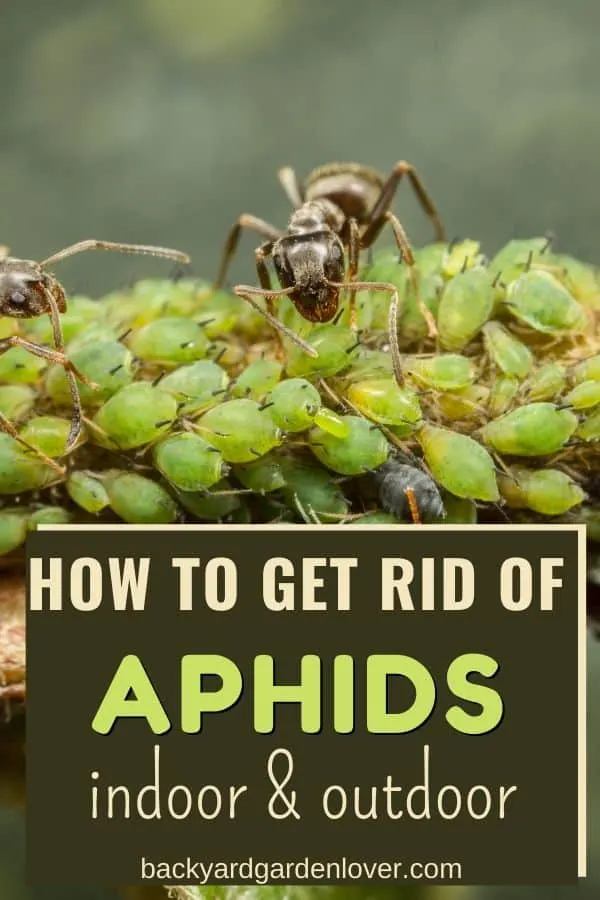
Adriana Copaceanu is a passionate nature lover living in the country on her dream property where she grows vegetables, lavender, and wildflowers that she shares with the wildlife they attract. When she's not in the garden, she loves spending time with her chickens and planning her next nature project. Check out her books below:
How to Grow Lavender for Fun and Profit: Lessons Learned from Planting Three Hundred Lavender Plants


11 Devastating Vegetable Garden Pests And How To Control Them
Thursday 20th of July 2023
[…] are a number of ways of getting rid of aphids. You […]
How To Save A Dying Tomato Plant
Wednesday 28th of June 2023
[…] Learn more about controlling aphids. […]
How To Create A Spectacular Rose Flower Garden
Monday 15th of May 2023
[…] Aphids also love roses, but you can usually just hose them off. If you have a big infestation, take a look at my article about how to get rid of aphids naturally. […]
How To Grow Chervil (French Parsley)
Wednesday 11th of January 2023
[…] Not many tests or diseases will attack chervil, but there may be an occasional outbreak of aphids, although these can usually be washed away with the garden hose. If this doesn’t work, use an insecticide, but remember to use only those approved for use on edible plants. Carefully follow directions and wait the required length of time before eating the herb. This goes for all edible plants. Learn more about controlling aphids. […]
7 Best Companion Plants For Eggplant (And 3 To Avoid)
Monday 28th of November 2022
[…] is a wonderfully versatile culinary herb. In the garden, this aromatic perennial deters aphids, cabbage moths, spider mites, and other pests. The tiny flowers also attract beneficials, like […]